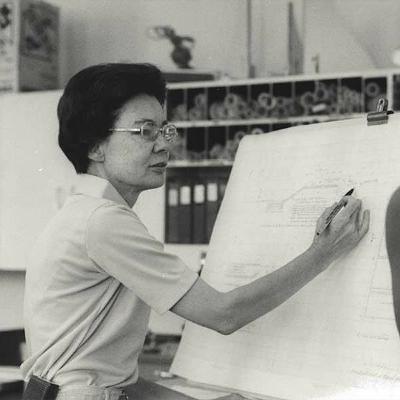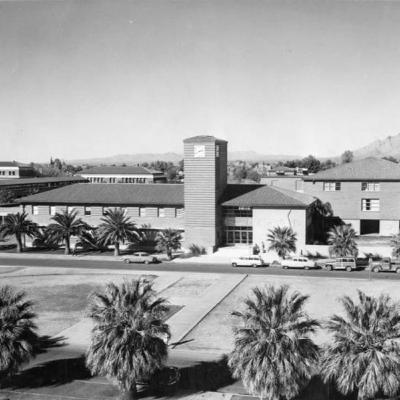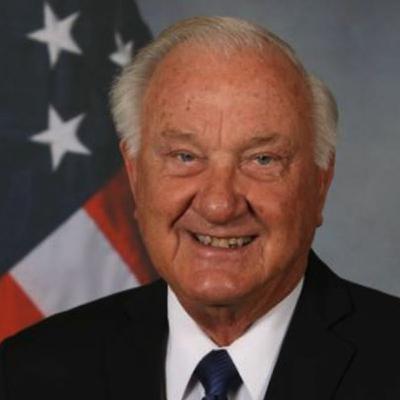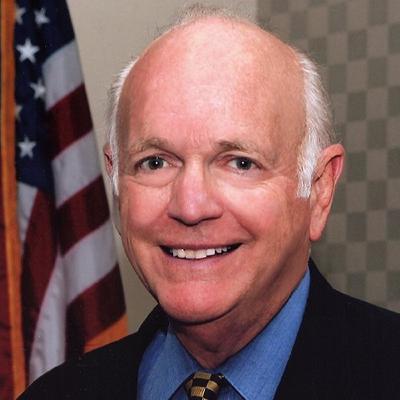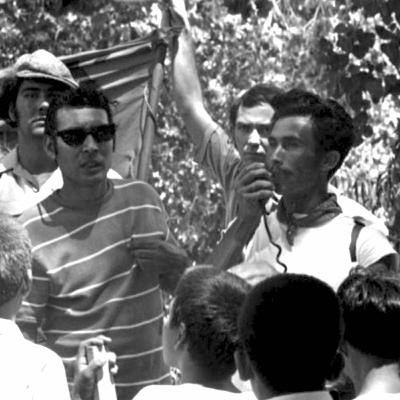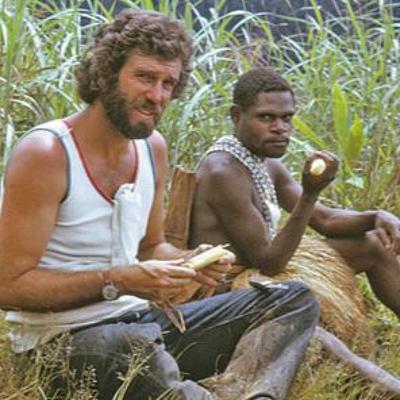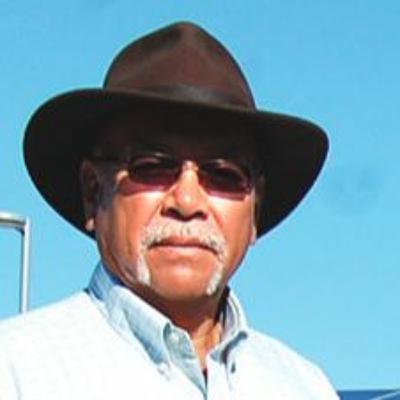Discover UA Libraries
UA Libraries
UA Libraries
Author: UA Libraries
Subscribed: 6Played: 55Subscribe
Share
© All rights reserved
Description
We are the University of Arizona Libraries: Main, Science and Engineering, Health Sciences, Fine Arts, and Special Collections. Transcripts of lectures and events are available by request from drc.arizona.edu
364 Episodes
Reverse
Archive Tucson interviewee Francis Walker describes her experience with a domineering dorm mother in the late 1940s.
In this excerpt from Archive Tucson, Bill Risner tells of an audacious and ill-conceived cake heist from a University of Arizona celebration in 1962.
Archive Tucson is the oral history project of Special Collections at the University of Arizona Libraries. This interview is with Peter Ronstadt and it covers the following themes:
Reasons for leaving UA as an undergraduate.
Working on maintaining stock well pumps for family business.
Resuming UA degree while working at TPD.
Decision to pursue police administration in 1970s. Interest in changing officer training: teaching officers about local culture, working with indigenous and Hispanic groups.
Changing shifts and staffing patterns.
Introduction of computers and data analytics.
More non-officers joining Police Department.
Policing in the 1970s. Perceptions of police are national. Interest in greater communication skills.
1980s gang culture, fragmenting of drug organizations, and “war on drugs.” Local Tucson gangs.
Militarization of police and public armament.
Work as police captain.
Tenure as chief of police.
Retirement.
Being a police officer with a famous relative and a well-known local family.
Description of Ronstadt Hardware Company’s store. Decline of downtown and industrial retail.
This interview was recorded on February 10th, 2020 in Tucson, Arizona.
Archive Tucson is the oral history project of Special Collections at the University of Arizona Libraries. This interview is with Peter Ronstadt and it covers the following themes:
b. 1942
Father’s home construction near Rillito River after Second World War. High groundwater tables. Planting eucalyptus. Valley of the Moon. Horseback riding.
Exploring downtown Tucson as a child. Congress Street bars.
Religion and singing in choir. Tucson Boys Chorus.
Hunting and camping with parents in the Altar Valley. Aircraft noise.
Development in the 1950s. Winterhaven.
Building small house on family’s property.
Attending Tucson High. Opening of Catalina High School.
Tucson’s eastward expansion.
Interest in playing rock music. Attending University of Arizona in early 1960s, ROTC, dating, car culture.
Childhood interest in music.
Dropping out of UA in 1964. Traveling in Europe as a young adult.
Attitudes towards police as a child. Joining the Tucson Police Department in 1965. Bernard Garmire department changes. Father’s attitude towards police.
Drugs and organized crime in Tucson: tongs, Joe Bonano.
The reforms of TPD chief Garmire.
Crime in downtown Tucson in the 1960s.
Trying to professionalize police force.
Getting shot at in Tucson during the night of Los Angeles’ Watts Riot. Reconsidering police/community relations.
Work as beat cop. Policing and race in 1960s Tucson.
Miranda rights. Changing police training.
1960s/1970s protests and interaction with activists. El Rio Golf Course occupation. Development of City infrastructure for more community involvement.
This interview was recorded on February 3rd, 2020 in Tucson, Arizona.
Archive Tucson is the oral history project of Special Collections at the University of Arizona Libraries. This interview is with Clarence Dupnik and it covers the following themes:
The politics of being in the Police Department versus the Sheriff’s Department and Dupnik’s move to the Pima County Sheriff’s Department in 1977. Working with Sheriff Richard Boykin.
Working with David Yetman to find better models for the Pima County Jail.
Campaign for Sheriff in 1980.
Attempting to bring more women into the Department.
Challenging areas for law enforcement in Pima County.
Lack of Tucson support for police. Comradery between law enforcement and fire in Tucson.
Medical care and the County Jail.
Federal money for local law enforcement.
The US-Mexico Border and the Pima County Sheriff’s Department. Immigration in the 1980s. Salvadoran refugees and the Sanctuary Movement.
Arizona SB 1070 in 2010 and the role of immigration in politics.
Changing drug landscape in the 1980s; demand, use, petty crime, Border Patrol corruption. Connections between cartels and immigration.
Creation of the D.A.R.E. and School Resource Officer programs.
Gangs in the 1980s.
A discussion of the first amendment, the role of the courts, and the increasing incivility of American culture across Dupnik’s life.
Hiring, management, public relations, campaigning. Stress of politics and law enforcement.
The 2011 shooting of Congresswoman Gabrielle Giffords.
Creation of mental health unit at Sheriff’s Department.
Homelessness. The Pima County Farm.
Reflections upon speaking out against SB 1070.
This interview was recorded on February 11th, 2020 in Tucson, Arizona.
Archive Tucson is the oral history project of Special Collections at the University of Arizona Libraries. This interview is with Clarence Dupnik and it covers the following themes:
Miranda v. Arizona and its influence on interrogation. Emphasis on new types of evidence.
Attitudes towards police during the 1960s. Vietnam protests.
Firearms, police fear of injury, bulletproof vests.
Pioneer Hotel fire of 1970. Managing disasters and crowds; military tactics. Lack of interconnected radio systems. The conviction of Louis Taylor.
Three nights of Vietnam War protests at Park and University in 1970. Dispersing protestors.
Reflections upon the Watts riot.
Drugs in the early 1960s. Early attempts at drug education. Social change in attitudes towards drugs. Law enforcement’s growing interest in prevention and education; creation of School Resources Officers.
The changing approach of law enforcement towards the mentally ill. Pima County Hospital in the 1950s and 1960s.
Changes in public drunkenness laws.
Drugs, corruption, and pre-cartel drug importers. Aerostat balloons and low flying drug aircraft. Lil’ Abners Steakhouse.
Sheriff Waldon Burr. Corruption within the Pima County Sheriff’s Department during the 1960s.
Charles Schmid murders.
This interview was recorded on January 30th, 2020 in Tucson, Arizona.
Archive Tucson is the oral history project of Special Collections at the University of Arizona Libraries. This interview is with Clarence Dupnik and it covers the following themes:
b. 1936
Birth in a Polish farming community in south Texas. Great Depression and family migration to Bisbee, Arizona.
Family structure, women in the workforce, availability of credit. Father’s experience working for Phelps Dodge. Masons and Catholicism. Mother’s life and household. Childhood activities, baseball. Safety and agency of children. Paperboy. Travel to Tucson. Bisbee water systems. Dating in Bisbee.
Attending the University of Arizona, living in Hopi Lodge. Drinking, tobacco, and drugs in the 1950s. Dropping out of the UA and joining the Tucson Police Department.
TPD in the late 1950s; changing department, hiring practices, unpaid hours, wool pants and no air conditioning, police phones on telephone poles.
Crime in the fifties. Race and policing. Demographics of TPD. “Us versus them” mentality and different perspectives upon law enforcement from different levels of management.
Working at the police training academy in the late 1950s. Making bullets by hand.
Promotion to detective work. Pawn shop detail.
Interrogations and the polygraph.
Low wages of police officers and Dupnik’s need for promotion to support family in 1962. Challenges of being a sergeant.
Joe Bonanno's move to Tucson. Rogue FBI agent David Hale and bombing of Joe Bonanno’s house. Relations between TPD and FBI. Mafia in Tucson.
This interview was recorded on January 20th, 2020 in Tucson, Arizona.
Archive Tucson is the oral history project of Special Collections at the University of Arizona Libraries. This interview is with Dennis DeConcini and it covers the following themes:
Relationship with lobbyists as a Senator.
Lobbing career after Senate retirement. How lobbying works, personal experiences, and ethics of lobbying. Finding clients as a lobbyist.
Board service after lobbing, including the Corrections Corporation of America, and Freddy Mac.
This interview was recorded on February 12th, 2020 at the Arizona Inn in Tucson, Arizona.
Archive Tucson is the oral history project of Special Collections at the University of Arizona Libraries. This interview is with Dennis DeConcini and it covers the following themes:
Acquaintance with Raul Castro. DeConcini acting as Castro’s Pima County campaign manager. Castro’s move from Arizona Governor to ambassador to Argentina. Policy legacy: Drug Control District for Arizona.
Charles Keating and the Keating Five.
The role of money in politics.
Taking criticism from the press.
Controversial votes: voting for Clarence Thomas, Panama Canal. Changing opinions.
The importance of lobbyists.
Changing position from pro-life to pro-choice.
Choosing areas of expertise in policy.
Recruiting office staff.
Conversations across party-lines. Social life in the Senate. The challenge of being a moderate.
Gun policy. Positions that changed across career: gun control, abortion, marijuana decriminalization.
This interview was recorded on January 28thth, 2020 at the Arizona Inn in Tucson, Arizona.
Archive Tucson, the oral history project of Special Collections at the University of Arizona Libraries. This interview is with Dennis DeConcini and it covers the following themes:
Political ambitions as a young man. Family emphasis on public service.
Arizona’s political landscape in the early 1970s.
First visit to Washington, D.C. to lobby in early 1960s.
The effects of a political career on family life.
Civility in politics and the beginning of negative campaigning.
Door-to-door campaigning.
Conversations with Raul Castro and encouragement to run for US Senate.
War on drugs: anti-drug work as Pima County Attorney, trying to stop low-flying drug smuggling aircraft in the 1970s, tough-on-crime politics of the 1980.
Water law and the Central Arizona Project. Extending the CAP to Tucson. Popularity of the CAP.
Earmarks and getting federal money for Arizona.
Campaigning on Indian reservations.
Most satisfying appropriations.
Relationships with environmental groups.
https://www.archivetucson.com/short-edits/2020/7/7/at-shorts-occupying-the-golf-course
Recent marches over police brutality remind us of the long tradition of American protest and reform movements, from women’s suffrage to Civil Rights, anti-war to anti-free trade.
Tucson has had its share of protests echoing larger national movements, but perhaps its most iconic local protest was the occupation of the El Rio Golf Course. It was the summer of 1970 and the protest marked an intensification of efforts by the Manzo Area Council and residents of Tucson’s west side to secure the creation of a neighborhood park. Salomon Baldenegro (pictured left) was an organizer and participant in the protest and he recounted his story for Archive Tucson.
Archive Tucson is the oral history project of Special Collections at the University of Arizona Libraries. This interview is with Dennis DeConcini and it covers the following themes:
b. 1937
Family history, paternal grandparents move from Italy to the United States. Maternal family's settlement in eastern Arizona. Father’s political and legal career. Property development in Tucson. Family connection with Udalls.
Attending college at the University of Arizona.
Trying to win appointment to become Pima County Attorney.
Father’s water company.
Pima County Attorney race continued.
Changes in practice of law between DeConcini’s father and himself.
Friendship with Sandra Day O’Conor, work with Barry Goldwater to lobby for O’Conor’s appointment to the Supreme Court.
Being a generalist lawyer.
Real estate law and father’s acquisition of land. Local banking. City growth and changes in land use before and after the Second World War.
Tucson as a child. Growing up near Broadway Village. Academic odyssey across many schools in Tucson and Phoenix. Tucson High experience.
Postwar auto culture and road trips before freeways.
ROTC and military reserve service between Korea and Vietnam.
University of Arizona for undergraduate and law. The Arizona Bar exam.
Remaining in Tucson rather than moving to California.
This interview was recorded on November 27th, 2019 at the Arizona Inn in Tucson, Arizona.
Archive Tucson is the oral history project of Special Collections at the University of Arizona Libraries. This interview is with Mary Olga Leon and it covers the following themes:
b. 1930
Father’s work at El Tucsonense. Growing up on south Stone Avenue across from the Temple of Labor. Neighborhood description, games, nearby Elías and Carrillo families. Description of Meyer Avenue.
Attending St. Augustine Cathedral school for elementary. Description of the church in the 1930s/40s. Attending Safford for middle school.
Family’s experience during Great Depression. Welfare.
Stepfather’s work as butcher, local meat. Food. Description of mother’s day-to-day life at home. Walking culture. Dancing at Santa Cruz Church.
More observations on life during Great Depression. Outbreak of World War II.
Music. DJ Jacinto Orozco.
[Oscar Leon joins the interview.]
Working at El Minuto Café in 1945
Dancing.
Santa Cruz River in 1940s and 1950s. Description of Cottonwood Lane.
Tucson High experience in late 1940s.
Olga and Oscar’s courtship and marriage. Getting a house. Marriage. Oscar’s family ranch in Vail. City expansion and traffic.
Changes in clothing, shopping downtown in the 1940s.
This interview was recorded on April 24th, 2019 in Tucson, Arizona.
Archive Tucson is the oral history project of Special Collections at the University of Arizona Libraries. This interview is with Roland “Ron” Perry and it covers the following themes:
Perry’s return to Tucson in mid-1960s after world travels. Description of the Campbell/Glenn area.
Description of being drafted into the Korean War. Basic training in Hawaii. Arizona’s Army Reserve unit that Perry was involved with in high school. Getting married and annulled before service.
Eclectic details about experience in Korea.
Brief University of Arizona experience. Greek life.
Interest in studying forestry and experience doing surveying work in Happy Jack, AZ.
Flying near Tucson, working in ASARCO mine shop.
Getting married after military service. Selling trampolines in Australia. Working at inlaws’ Australian sheep station.
Getting a job as a surveyor in New Guinea
This interview was recorded on October 7th, 2019 in Tucson, Arizona.
Archive Tucson is the oral history project of Special Collections at the University of Arizona Libraries. This interview is with Roland “Ron” Perry and it covers the following themes:
b. 1932
Family and childhood in Hotchkiss, Colorado. Uncle’s WWII flying career, grandfather’s service with Teddy Roosevelt’s Rough Riders. Family’s early connection to Tucson and Miami, AZ. Uncle Sunny Valdez, Arizona boxing champion.
Perry’s move to Drexel Park in the late 1930s. Capturing rattlesnakes and burros. Elementary school at Sunnyside. Work at feed store. Swimming at El Conquistador Hotel. Mother and maternal aunts.
Picking cotton during World War II as school activity. Raising chickens and rabbits for food during WWII. Fathers work for railroads.
Buying property.
Attending Mansfeld and Tucson High, graduating in 1950. Walking as a child and safety.
A detour about a very long walk/trip around the world in the mid/late 1950s?
Tucson High experience.
This interview was recorded on September 30th, 2019 in Tucson, Arizona.
Archive Tucson is the oral history project of Special Collections at the University of Arizona Libraries. This interview is with Jacqueline Levy Rosenfeld and it covers the following themes:
Fire in the Levy’s store in 1943 and challenge of rebuilding during WWII.
Moving east to the edge of Tucson at Craycroft in 1954. Community forming in newly constructed east-side developments.
Business following residential construction. Early supermarkets. Traffic and transport as city expanded in 1950s and 1960s.
Sale of Levy’s to Federated Department Stores in early 1960s.
Tucsonans’ views of Phoenix.
Volunteering at Tucson Medical Center in the 1960s.
Motherhood from the 1950s-1970s.
The Pioneer Hotel, heyday and fire. Old Pueblo Club.
Reflections upon a changing city.
This interview was recorded on March 28th, 2019 in Tucson, Arizona.
Archive Tucson is the oral history project of Special Collections at the University of Arizona Libraries. This interview is with Jacqueline Levy Rosenfeld and it covers the following themes:
Post World War II growth in Tucson with a few comments on the Cuban Missile Crisis.
A description of the first Levy’s store. Hat culture and dress formality. Levy’s fashion buyers in New York.
Meeting husband on trip to New York.
College expectations for women during the 1940s.
Father’s death, El Con Mall development, and the end of family-owned department stores.
This interview was recorded on February 28th, 2019 in Tucson, Arizona.
Archive Tucson is the oral history project of Special Collections at the University of Arizona Libraries. This interview is with Jacqueline Levy Rosenfeld and it covers the following themes:
Importance of Statehood Day as a child. Sense of identification with states.
Tucson’s Jewish community in the 1930s and 1940s.
Childhood activities, holidays. Religiosity in family.
Fashion and dress codes. Rodeo Parade. Cele Peterson. Squash blossom dresses. Romance of the West for non-Western Americans.
This interview was recorded on February 14th, 2019 in Tucson, Arizona.
Archive Tucson is the oral history project of Special Collections at the University of Arizona Libraries. This interview is with Jerry Carlyle and covers the following themes:
Language in Carlyle’s life. Family use of O’odham and English. Language in school. Relearning O’odham as an adult. The pressure to assimilate into Anglo-American society for Carlyle and his parents.
Thoughts on the relationship between language and culture.
Trying to expand O’odham use, especially in schools. O’odham dialects.
The role of grandparents in transmitting culture and language.
Carlyle’s career in welding and power plants in Northern and Central Arizona during the 1980s and 1990s.
Carlyle’s return to Southern Arizona in the late 1990s to teach building trades and wrestling at Baboquivari Unified School District.
Growing involvement in the San Xavier community, joining efforts for local police, fire, housing, and education services that were independent of Sells.
Overhauling the physical infrastructure of Baboquivari schools.
School district attempts to keep students enrolled and out of gangs. Development of an alternative high school for at-risk students. Working with gang members in the classroom an in trades. Fitness programs. The discontinuation of the alternative school.
Carlyle’s departure from the school district and involvement in politics in the San Xavier District.
Demographics of Baboquivari Unified teachers. The realities and limits of casino funding and educational support.
This interview is part 5 of 5 and was recorded at the base of Tumamoc Hill in Tucson, Arizona on February 12th, 2019.
Archive Tucson is the oral history project of Special Collections at the University of Arizona Libraries. This interview is with Jerry Carlyle and covers the following themes:
Employment opportunities for San Xavier residents when Carlyle was growing up in the 1960s. Subsistence farming and lack of economic development. Educational opportunities drawing residents away from San Xavier. The defunding of Tohono O’odham vocational programs in the 1970s and loss of skilled labor.
Unemployment and gang activity. Biker gangs, Bloods, and Crips.
Challenges to development and construction on tribal and allotted land. The evolving process of building a home in the San Xavier District.
Historical lack of capital and the impossibility of obtaining bank loans for anything built upon tribal lands. The success of the Tohono O’odham Swap Meet. Interest in investing in land off the reservation.
Changes in sovereignty and bureaucratic complexity. Building code adoption and the evolution of construction styles over Carlyle’s life.
This interview is part 4 of 5 and was recorded at the base of Tumamoc Hill in Tucson, Arizona on October 19th, 2018.


